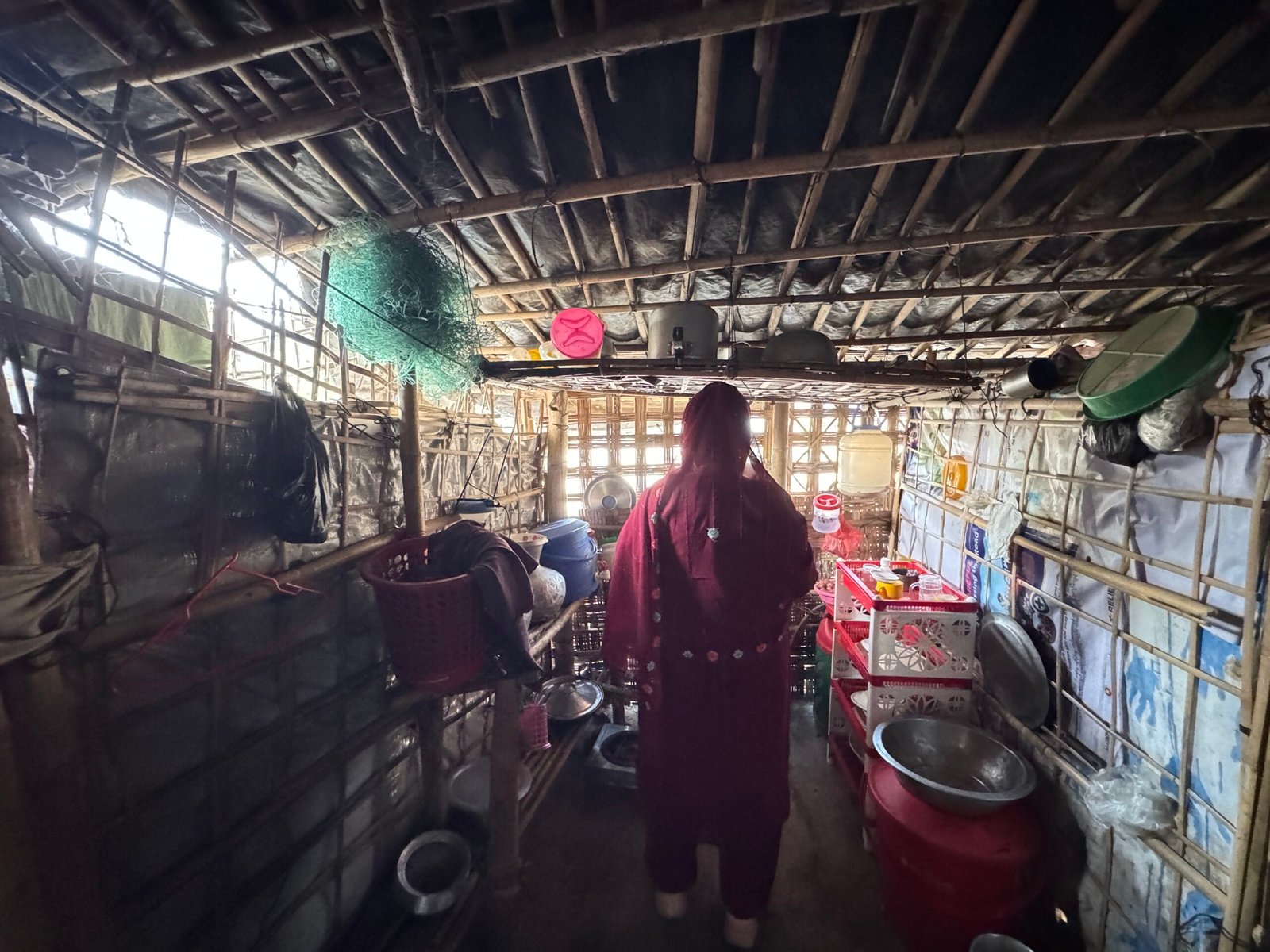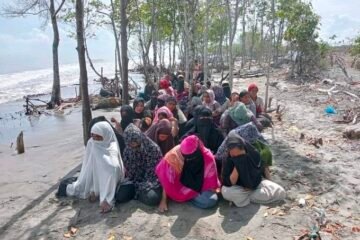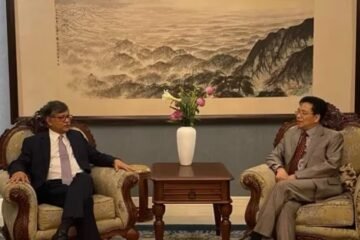Since the ethnic cleansing campaign in August 2017, the survivors have been systematically denied fundamental human rights, dignity, and the right to return to their homeland, Myanmar.
Prior to 2017, an estimated 1.4 million Rohingya resided in Myanmar. Following the Rohingya genocide, approximately 750,000 individuals were compelled to seek refuge in Bangladesh. Presently, there are nearly 1 million Rohingya individuals residing in refugee camps situated in Cox’s Bazaar, Bangladesh. These individuals are stateless and marginalized.
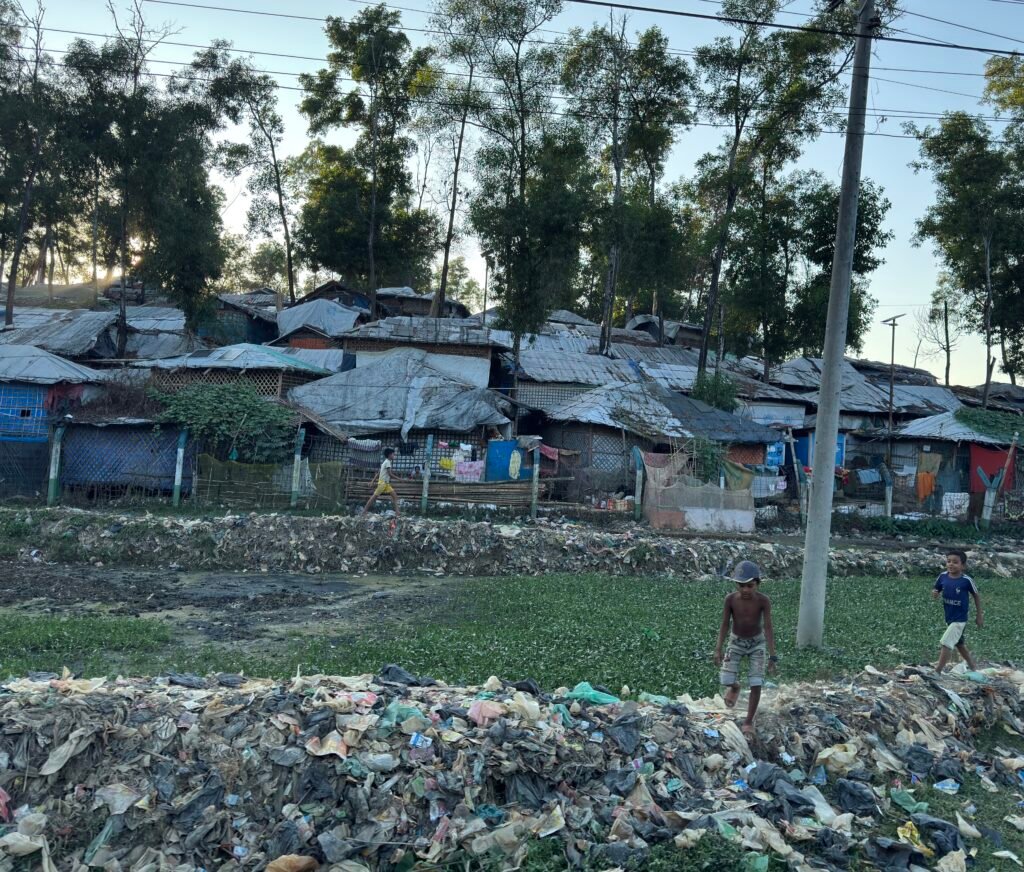
The Rohingya people, the indigenous and authentic inhabitants of Myanmar, face severe restrictions in their education, movement, and religious freedom. They are denied basic rights, including the right to reside in their own homes. Housed in precarious conditions under tents on perilous land, they are constantly at risk of fatal landslides, extreme weather exposure, and flooding. Despite their undeniable presence in Myanmar, the oppressive Buddhist government has systematically restricted their nationality rights due to their Muslim faith.
The constant genocide on the Rohingyas is up to 70 years old and ultimately one million Rohingyas were driven out of their homeland, through systematic Military action and human rights violations, testament to war crimes, purely based on racism and xenophobia.
Consequently, the Rohingyas people, especially children, have been under the target of human traffickers because they know these people need a place to escape too where they can feel safe and have peace. For this reason, the Rohingyas people have been forced to take perilous and dangerous journeys across seas and lands and some even try to escape on planes using forgery documents. Most of them cannot reach to their destinations as they either die at sea or are arrested on the way by Navy’s of different countries and many also go missing in the sea. It is the sad continuing process, long term, in which the deaths and dangers are written for these refugees. Very few are recorded as reaching their destinations and most of them get stuck on the way.
Let’s hear the tragic story of Kotiza Begum, a mother of six living alone in the world’s largest Rohingya refugee camp. She faces financial difficulties to provide for her daughters and worries about their future. With no income source, they rely solely on humanitarian assistance from NGOs and INGOs. As her daughters grow, she fears the cost of their education and marriage. In the Rohingya community, parents often face challenges in affording their daughters’ weddings, leading them to risk journeys through the seas or lands to send them abroad. Kotiza sent her daughter Fiarah to Malaysia by boat through Teknaf, a journey that took 15 days to reach Thailand through Myanmar.
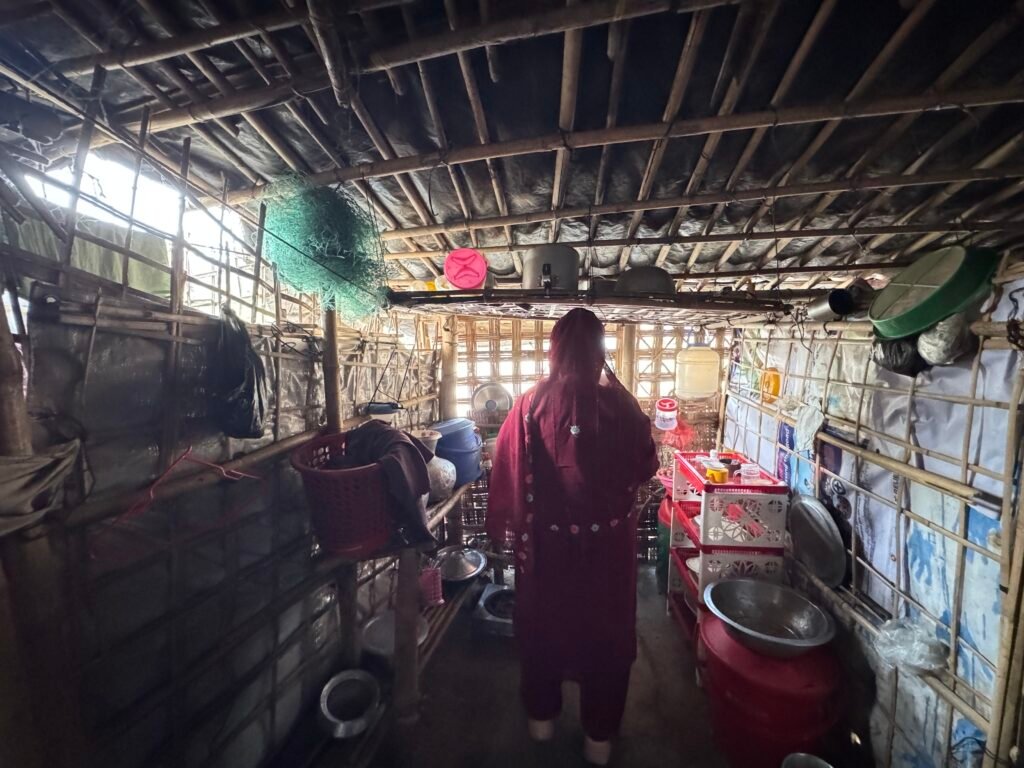
A mother reported to me that her son is living at Malaysia now. He is an 18-year-old student, and he used to study in Myanmar but had to flee Myanmar in 2017 due to conflict. After arriving here in refugee camp. He was studying under private teacher and one day he decided to leave the camp and went to Malaysia without informing her. The mother said: “She didn’t expect her son would leave the camp and they are forever in search of better lives”.
Traffickers took half the payment, around 250,000 tk, from each refugee camp family. He sold them to another trafficker in Thailand. Now, he demands a huge amount from each hostage’s family, but they can’t release them. The families have already sold their valuable things in the camp and can’t afford to release them again.
Kotiza added, “she even sold her shelter properties and took a loan with interest to release her daughter.”
Rohingyas rely on traffickers for long-distance journeys. Traffickers operate in camps and nearby areas, managing people and handing them over to local traffickers for river crossings to Myanmar or ship boarding at Teknaf or Moheshkhali. These traffickers are widespread, promising safe passage. A victim recounted his perilous sea and jungle journey, declaring it the most dangerous of his life and advising against such risks.
Brokers from the Rohingya, host, and Rakhine communities in Myanmar, as well as others from different regions, are easily accessible due to the large Rohingya community in Malaysia. They contact traffickers at the refugee camp, host community, and Myanmar. Regional traffickers collaborate to plan their operations. Refugees from Malaysia or other countries maintain constant contact with traffickers. One trafficker mentioned managing people initially, but later sought help from Malaysians who wanted to take them to Malaysia from the camps or abroad. Another trafficker stated they had contacts from camps or abroad to facilitate trafficking.

Refugees escape Myanmar via various routes. Initially, they traveled by plane from Bangladesh, paying a high fee. Later, traffickers used the river journey, risking their lives in the seas for years. Despite the dangers, they persevered, facing hunger and thirst for days. Now, traffickers employ the route to Myanmar. Refugees cross the NAF-river from camps to Shamila village in Akyab, staying in safe houses before taking a water voyage to Yangon. They then drive to the Thailand border, where they are held for a few days before being transported to Malaysia. Once in Malaysia, they are required to pay their bills and the full amount to their family members before being allowed to settle. Another trafficker noted that there are now various methods for transporting refugees abroad, either by vehicle or on foot.
Victims’ family receive information of their entire journeys, through brokers or their relatives who are in Malaysia. They always keep in touch with them via phones. There are even some victims who keep button phones with them secretly, without letting the traffickers know because the brokers confiscate all the phones from the victims once they start their journeys. One person of a family who daughter is in Malaysia described, their daughter had to keep the mobile set hidden in her hair without being seen by traffickers and the family got the access of her destination until she reached Malaysia”.
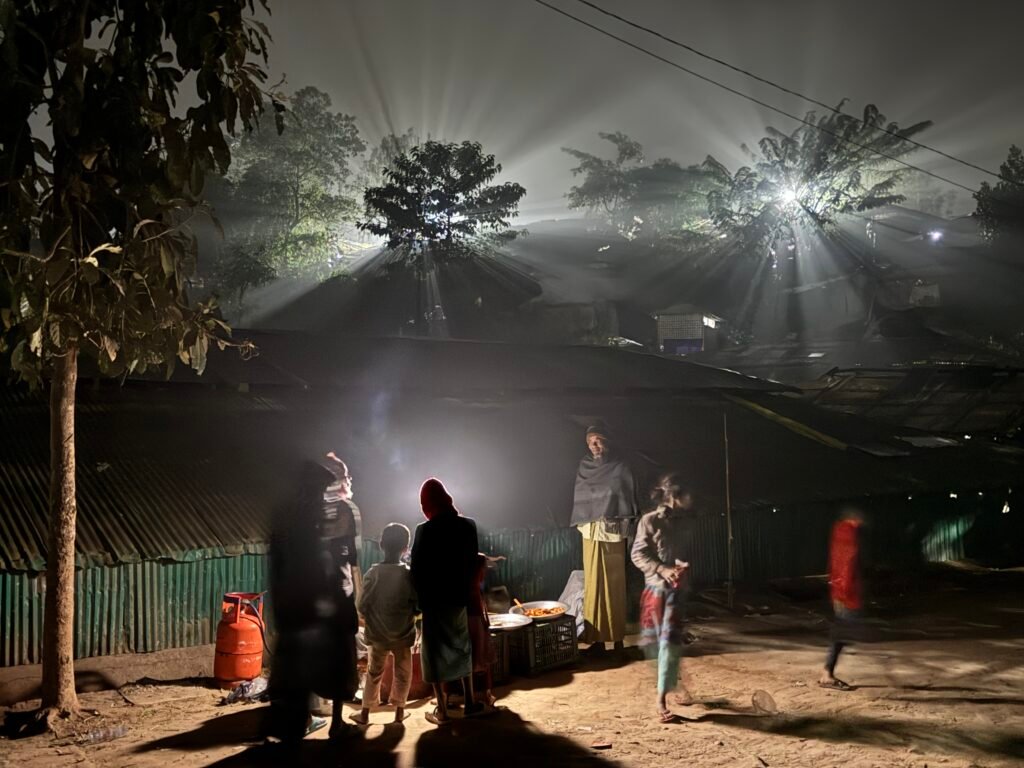
Most of refugees took more than one month to reach there. Some need to take many days to reach there.
One of fathers said: “It took his son almost one month to reach Malaysia.” But there are very few who reach over there in a short time but most of them need almost one month.
The challenges they faced along the journey are numerous, such as restrictions from authorities everywhere; they must hide place to place and continually move, they cannot eat proper meals and cannot drink water on the way. They mostly have are the dry ration foods which are not enough to even fill their stomachs and sometimes they get arrested on the water by authorities. Many have reported being tortured by the traffickers if they do not pay the charge amount on time. They are not permitted to speak, eat, or even sleep on their journeys. The reason refugees are facing all these inhumane difficulties is due to them being classed illegal immigrants, list people, from one place to another place.
They must pay more than 4.5 lakhs taka to traffickers and most of refugees borrowed huge amounts from my different relatives just to release their relatives from traffickers. Many of them must sell their valuables things such as gold, land, even the land where they live.
One of the victim mothers said, “She has sold out all her possessions just to release her son from traffickers, but they betrayed her as he son died in the journey. “
One of the father’s said that his son decided to go to Malaysia rather than living in camp where he was provided with limited rations because he could not see a future in the refugee camp. There are many youths in camp who can neither earn nor study here to support or any hope to their families. Also, they think that they are going to lose their future here in camp if they are made to stay there for a long time. There are so many restrictions for youths in camp such as education, uncertain future, safety and security. For all these issues, one refugee decided it would be good for him to go to Malaysia where he can earn money for their families and support them by working there and at least he can have freedom of movement and livelihoods.
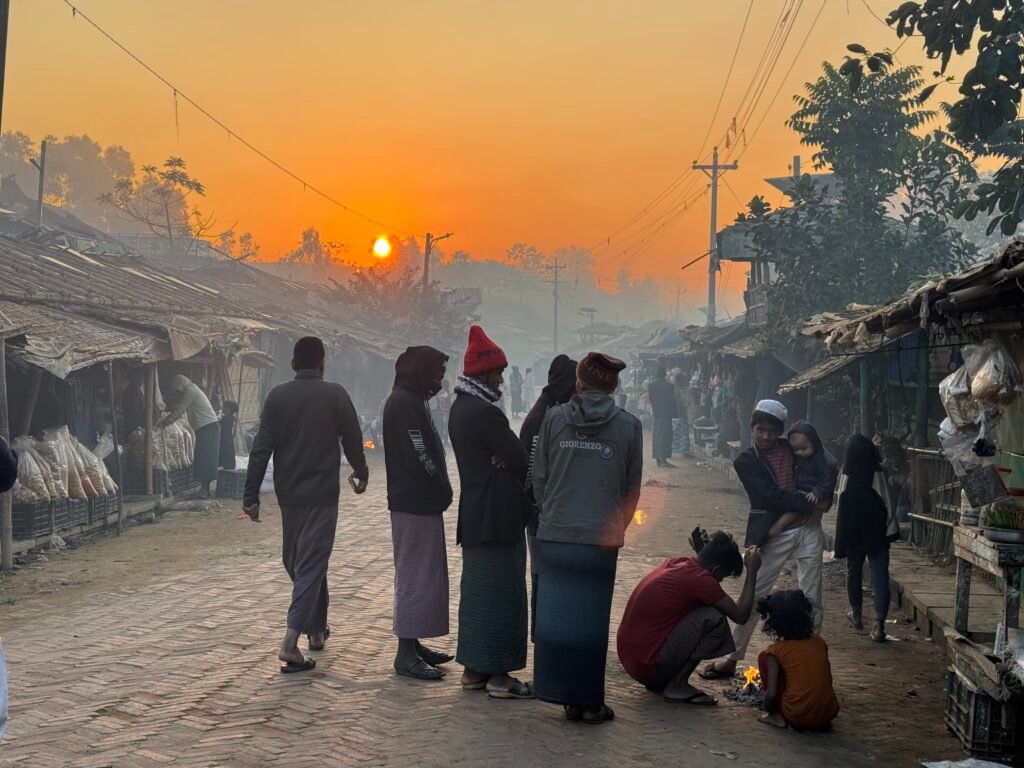
The types of people mainly involved in human trafficking are girls from poor families, youths both from poor and rich families , married women with children whose husbands are in Malaysia, sometimes old age people who cannot support their families in camp and decide to go Malaysia and also there are other students who cannot study in the camps, all collectively wishing to brighten their future where they will have freedom of movement and education.
The punishment in Bangladesh is not viewed as serious for them; when the agents are arrested while travelling – they are just being kept in detention centers for few days and then sent back to their shelters. This is not being documented and still there are no reports in Bangladesh that Rohingyas are jailed while travelling to Malaysia but two years ago, some Rohingyas were forced to go to Bachan Char Island while they were stranded in the sea of Bengal. When they were arrested inside Myanmar or Thailand or arrested while travelling, they are directly sent jail in each respective country, however in Malaysia, they are jailed for few years, and some were only released with the help of UN but in Myanmar they are jailed for two years for illegal travelling.
NGOs and government officials are aware, but the refugees still fall in the trap of brokers because they lure the innocent people and make money. There are many refugees who are being misled by the traffickers who promise to show them the ways of making money. All NGOs should invite Mazhi and community elders to attend the “awareness sessions of trafficking” and give them the responsibilities to stop the people from trafficking.
Traffickers within the camps exploit youths, convincing them to leave and earn money for themselves and their families. Once out, they sell refugees to local people for around 45,000-50,000 tk each, then forcibly transfer them to Myanmar via the Naf-river, selling them to Rakhine people in Sittwe. After reaching Shamilah in Rakhine state, they demand 1 lakh taka for each person, shocking and surprising their parents. Most can’t pay, so they sell valuables or borrow desperately to escape. Some manage to send their children to Malaysia through Myanmar to Thailand and Malaysia by investing heavily. Recently, a fatherless son from Balukhali camp was tricked into boarding a CNG and given a juice mixed with medicine, falling asleep and being taken to Teknaf for 45,000 tk. Similar incidents occur, with some beaten severely for not meeting the traffickers’ demands. Modern-day slavery is rampant and openly taking place.
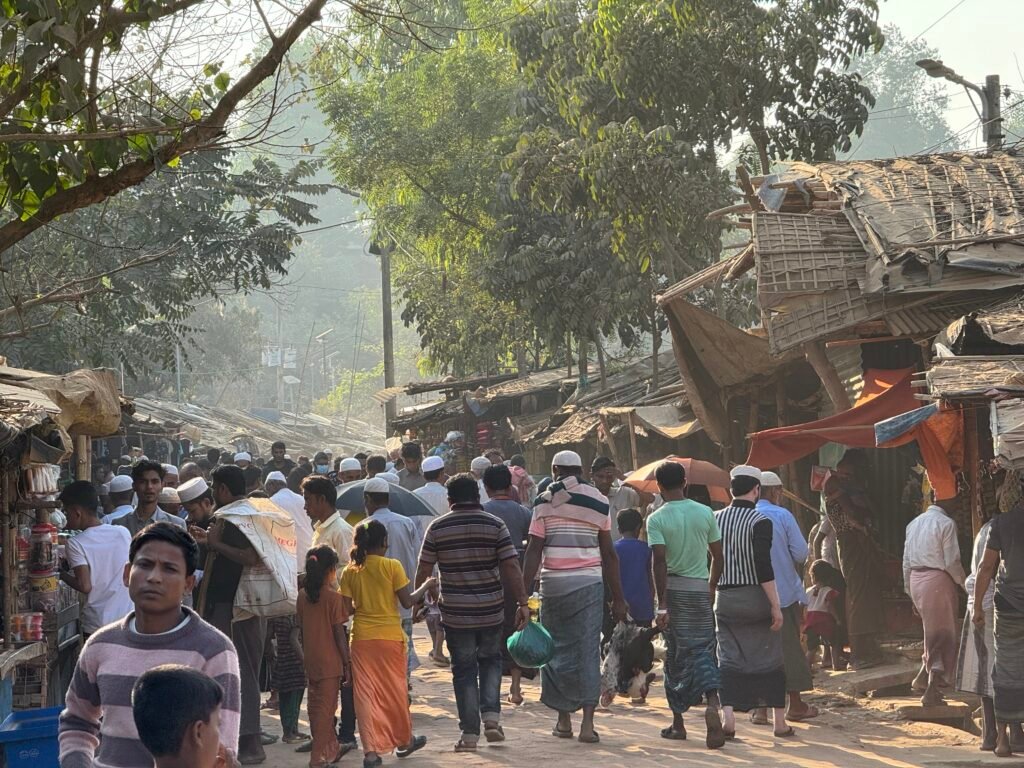
From Ukiya to Teknaf territory, most of the Rohingyas and host people cooperate with each other just to make the trafficking easier. Some refugees are kidnapped and sold to traffickers and others, to extort money and even most of the refugees are sold by gangs to gangs until they reach to Malaysia or Thailand. In this case, the people who do not have any works; vehicles drivers and the smugglers involved, make huge money on human trafficking of the Rohingyas people.
The immigrants are mainly young and unmarried girls and most of them are from poor families. They choose this specific way to marry Rohingyas working abroad as their parents cannot afford the burden of dowry and the costly society inside Arakan and Bangladesh Camps. Taking these kinds of risks has become inevitable for them.
One of the young girls from refugee camp told me “I don’t want to be a burden for my family. Because my family is among of the poorest and can’t afford the cost of my marriage. So I choose this journey to get married at Malaysia”.
One of the educated youths described me his feelings that “I am now at the age of 24 years old but I don’t have any work to do to support my family here. As my parents has raised me and now, they are old. So, this is my turn to take care of them at their old age. But I am not seeing anything further to support them. Which is why I am choosing the risky journey.”
In our community, many sisters choose this journey for better lives. Girls and even minors believe they can have beautiful futures there, get married without paying dowries, and avoid the financial demands of their parents. Musana Begum has seven daughters but hasn’t married any. She sent two daughters to Malaysia because there’s a high demand for Rohingya girls who don’t need dowries and can live freely. Living abroad allows them to support their families financially, making it a good opportunity for Rohingyas despite the challenges.
Rohingya lives more than a hell since the Buddhist government deprived them from their rights. The Buddhist military government have made all the Rohingya people as prisoners in our own homeland.
Since then, Rohingyas are struggling to survive. They are trying to have a peaceful land to make a peaceful and bright future for their next generation. For this reason, people sometimes must choose deadly routes which most of the time take their lives away. They handover themselves to human traffickers with their own money and jump into such horrible situations. Their lives have been horrific and inhumane, which a normal person can’t even imagine for himself, especially after military crackdown in Arakan on several occasions like 2012, 2016, 2017. Rohingya people had faced a dramatic increase in their number of migrations to their neighboring countries via these terrible routes under some Rohingya, Bengali and Rakhine traffickers.
According to some victims’ statement: The Arakan Army traffickers sexually abuse each lady they want and give them emergency pills after fulfilling their (AA) desires and then handover them to other parties of their contract or sometimes Myanmar coastal force, who as a consequence, capture and imprison them. Many of the innocent Rohingyas let their loved ones get into trouble by taking such risky and illegal ways.
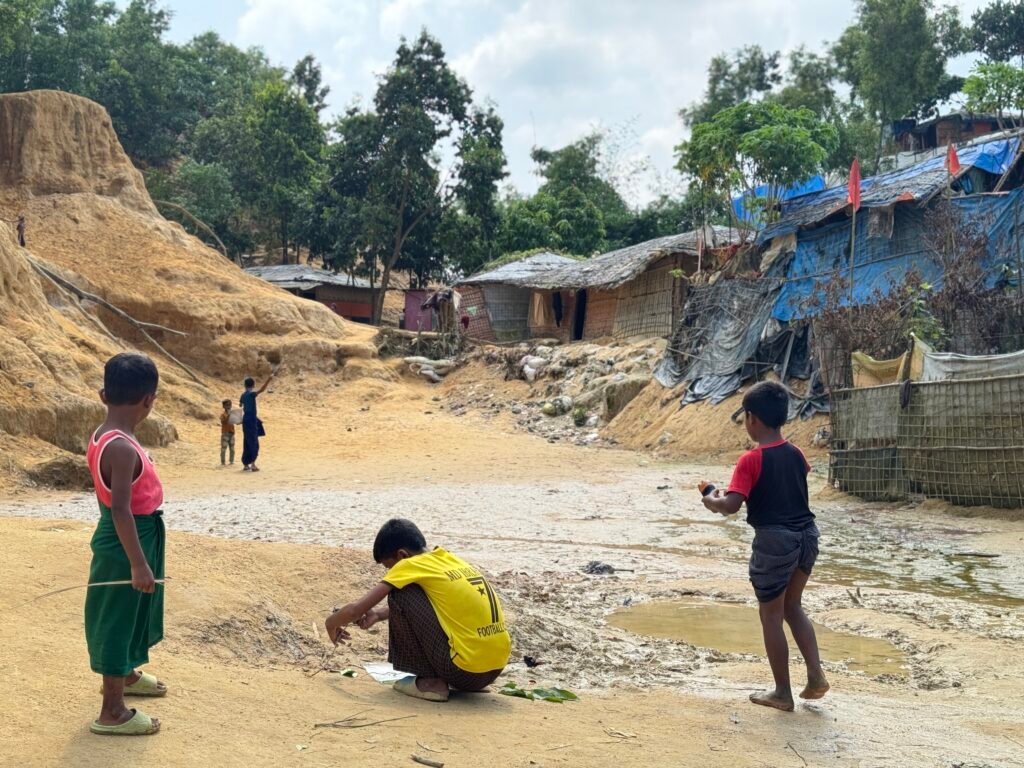
Moreover, Rohingya people must take measures to reduce or eliminate the dowry system. Please create opportunities and eases for your loved ones. Rohingya people are in this situation across the sea and forests. Many human traffickers are luring men, women and girls to take them to Malaysia by boat or on foot but they are being sexually molested by traffickers on their ways. Because of Shane the victims are too scared tell anyone. But we can realize and understand this bad situation easily, but we are not stopping anyone. I am convinced that no one will hear you if you try to stop this trafficking because they might think that you are giving the barriers among of them. Sadly, the people who have made up their minds to go there don’t try to take anyone’s decision and even don’t care as they themselves think that they are fully aware of everything.
I know many of us have seen some viral videos of the abuse of girls and women while traveling into the risky journeys. Many of the men and boys are badly beaten and sold into other traffickers in their ways. Today we know who are doing this kind of business among of us, but we shut up our mouths because we don’t want to hurt ourselves or thinking we will be threatened in the future for mentioning the truths.
There are men, women, girls, boys and even children who are making the decisions to go other countries by taking risky journeys should understand about the difficulties they will face in their journeys and there is no security and safety of them and there will be no one to cry to bury them on the ways. As we all know, already many of the families lost their beloved ones in the journeys yet we do not understand ourselves what we are doing and why we are doing.
This human trafficking is not only for going somewhere but for extortion money from refugees. Everyday there are kidnapping me happening around the camp and outside the camps. The camp authorities are trying their best to stop trafficking and giving security and safety for the refugees but every time the traffickers and kidnappers succeeds in trapping the refugees.
Note : This article is aimed to describe the lives of Rohingyas inside the camps and how they are mislead by the traffickers. I will keep writing on this topic as much as I can.
